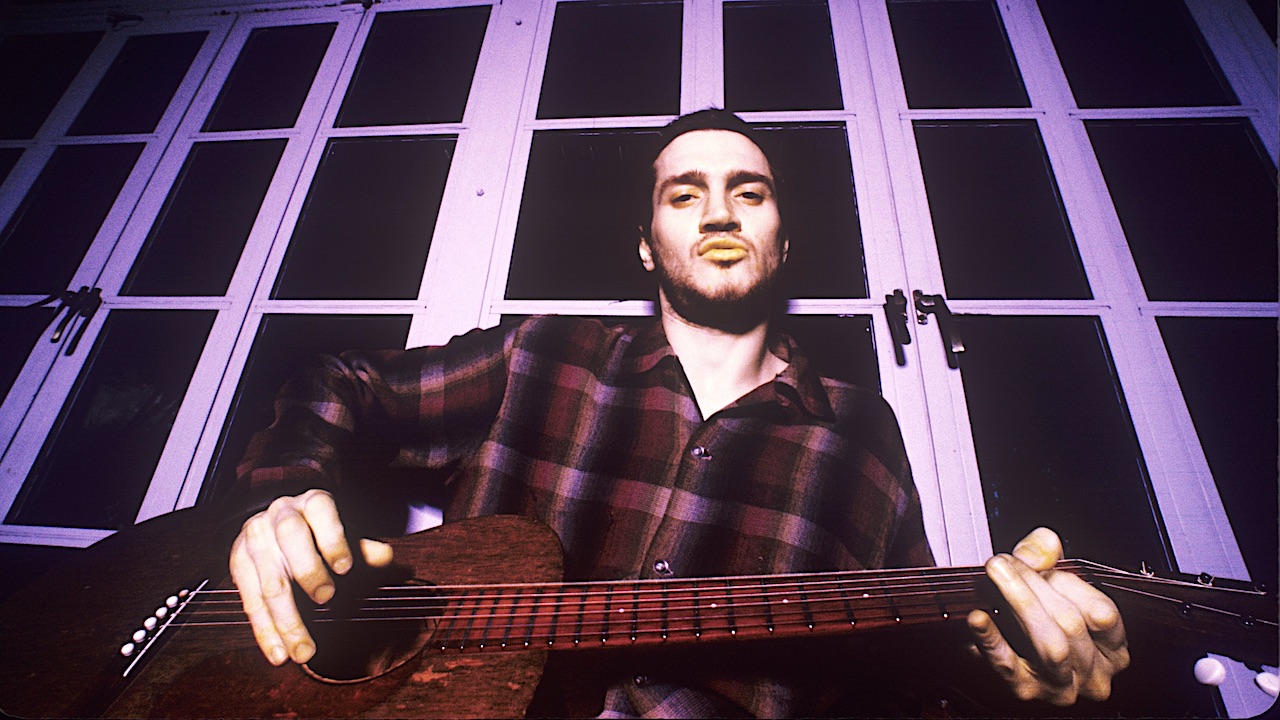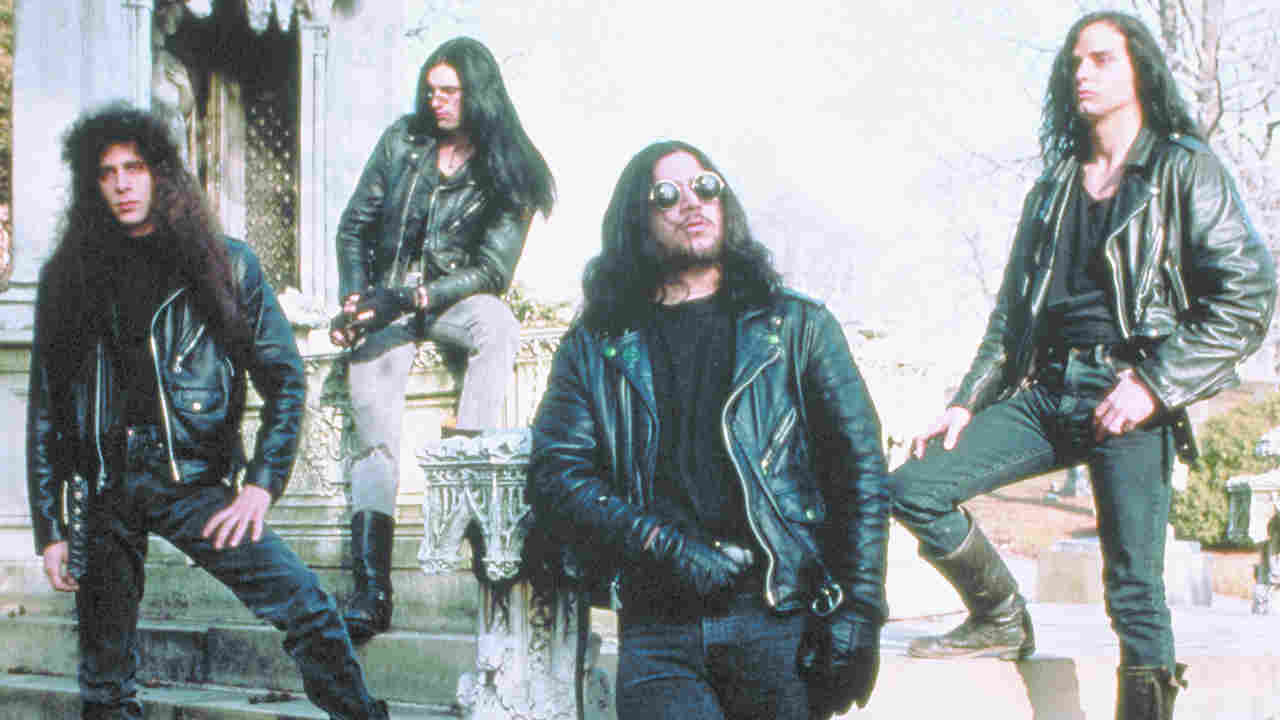“There was a very loud voice in my head that said, You're going to be dead by your birthday unless you get clean.” Red Hot Chili Peppers' John Frusciante on his recovery from addiction
At the end of 1997, John Frusciante was homeless, constantly hallucinating, and facing the very real prospect of jail or death. Six months later, he was back onstage with his brothers in Red Hot Chili Peppers

In 1996, Rick Rubin visited John Frusciante at home in Los Angeles, having been told by mutual acquaintances that his friend was not in great shape. The superstar producer, already famous for his work with Slayer, Beastie Boys and more, had worked with Frusciante on the Red Hot Chili Peppers' break-through album BloodSugarSexMagik, and had stuck loyally by the young guitarist after he decided to bail on the band, releasing Frusciante's debut solo record, 1994's Niandra LaDes and Usually Just a T-Shirt, on his American Recordings label. But when Rubin showed up at the musician's home two years on, he was taken aback by what he found.
“You didn't have many teeth then, if any, the walls had blood all over them, [and] there was a lot of vomit everywhere,” he reminded Frusciante in 2022, when the guitarist guested on the producer's popular Broken Record podcast.
“I remember you being resolute in what you were doing. There was a sense of... it wasn't like you were trapped and you wanted to get out, it was just the opposite: it was like, 'No, I am following my path and I'm following it to its end, wherever it takes me.'
“It was sad for me to see,” Rubin admitted, “because it felt like you were going away.”
In truth, Frusciante was lucky to be alive. Spending up to $500 per day on narcotics, his daily routine involved, as he later told a UK music magazine, “smoking crack all day long, shooting heroin, shooting cocaine, drinking wine, taking valium.” In February '96, he had overdosed, and needed a blood transfusion to survive.
“People didn't really enjoy being around me,” the guitarist admitted to Rub. “People felt sorry for me a lot. The same sense of humour that used to be funny when I was, like, the young handsome cool guy, now the same jokes didn't work anymore.”
Frusciante recalled that, at the time, he was hallucinating for hours at a time, imagining that he was having conversations with the likes of Jane's Addiction frontman Perry Farrell, or his former bandmate Flea, or the late French artist Marcel Duchamp, when, in fact, there was no-one else in his home.
“I don't know if it was communication with people's astrobodies, or hallucinations, I'm not sure what it was but it was very real,” he said. “And I remember that there was a very loud voice in my head that said, You're going to be dead by your birthday unless you get clean... My birthday would have been four months later.”
In December 1997, the guitarist would be evicted from his home, fleeing when his landlord threatened to come to the house with LAPD officers: Fruisciante had been arrested in downtown LA while trying to score drugs, and he knew that if police officers stepped inside his home, he'd be facing jail time. He collected what money he had stashed away, around six or seven thousand dollars he remembered, and promptly lost it in the back of a taxi, while en route to buy more drugs. It was at this point that a friend advised him to call Bob Forrest, formerly the frontman of LA punks Thelonious Monster, and at the time, as now, a recovery advocate, who tries to help addicts kick their habit. Forrest said he could get Frusciante into a recovery clinic, and the guitarist accepted the offer, admitting to Rubin, “it would have been between that, and just being a bum on the street, moving into a tent or something.”
By sheer coincidence, Frusciante found himself in the same clinic as former Chili Peppers/Dead Kennedy's drummer D.H. Peligro: he decided that, out of respect for Peligro and his fellow addicts, he would set his own ego aside, and submit to the program.
“I just felt this empathy for the people,” he told Rubin. “I thought, regardless of what happens with me, I don't want to mess up anybody else's experience here, because they've all been having a harmful effect on their loved ones and people around them and I'm not going to say anything to argue with their attempt to better themselves.”
Frusciante completed the 30 day program, and stayed clean. By his own admission, he was bored beyond belief without drugs, but friends - including Flea - started calling to see him again, and eventually, he started playing music again, coming to the conclusion that creating music might actually help others deal with their issues. And after the Chili Peppers parted ways with Dave Navarro, Frusciante was welcomed back into the band in the summer of 1998.
Listen to the full conversation between Rubin and Frusciante on the Broken Record podcast below.

The latest news, features and interviews direct to your inbox, from the global home of alternative music.

A music writer since 1993, formerly Editor of Kerrang! and Planet Rock magazine (RIP), Paul Brannigan is a Contributing Editor to Louder. Having previously written books on Lemmy, Dave Grohl (the Sunday Times best-seller This Is A Call) and Metallica (Birth School Metallica Death, co-authored with Ian Winwood), his Eddie Van Halen biography (Eruption in the UK, Unchained in the US) emerged in 2021. He has written for Rolling Stone, Mojo and Q, hung out with Fugazi at Dischord House, flown on Ozzy Osbourne's private jet, played Angus Young's Gibson SG, and interviewed everyone from Aerosmith and Beastie Boys to Young Gods and ZZ Top. Born in the North of Ireland, Brannigan lives in North London and supports The Arsenal.
